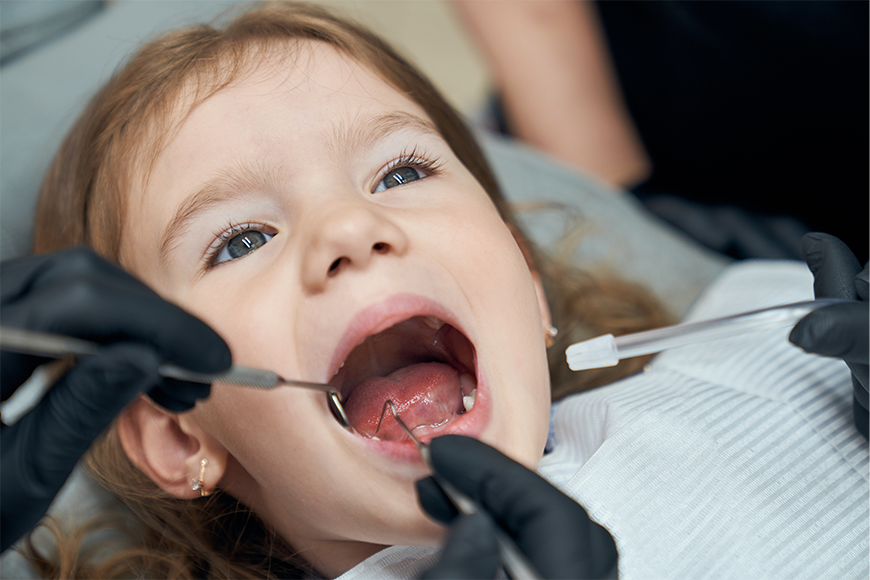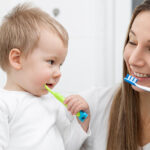That tiny, adorable human you adore? At night, or even sometimes during the day, those seemingly harmless little teeth start making a sound that’s anything but cute: a grating, grinding noise. Baby teeth grinding can be alarming, a mystery wrapped in a tiny, sleeping (or awake!) package. ‘Baby Teeth Grinding: When Tiny Teeth Make Big Sounds (and What to Do)’ isn’t just a catchy title; it’s the very question every concerned parent asks. Is it normal? Is it harmful? And, most importantly, what can you do to silence the nightly symphony of tiny teeth? If you’re a parent in Madison, NJ, or anywhere else, searching for answers, you’ve come to the right place. We’ll delve into the causes, concerns, and solutions surrounding baby teeth grinding, also known as bruxism, providing you with the knowledge and tools to address this common childhood phenomenon and restore peace to your household.
Why is My Baby Grinding Their Teeth? Unraveling the Mystery
Baby teeth grinding is a prevalent issue, affecting a significant number of infants and young children. While it can be alarming, it’s often a normal developmental phase. Several factors can contribute to this behavior:
- Teething: As new teeth erupt, the discomfort and irritation can lead to grinding as a form of self-soothing.
- Misalignment: Sometimes, the upper and lower teeth don’t align perfectly, prompting grinding as the child attempts to find a comfortable bite.
- Stress and Anxiety: Just like adults, children can experience stress. Changes in routine, new environments, or even separation anxiety can trigger teeth grinding.
- Medical Conditions: In rare cases, bruxism can be associated with underlying medical conditions, such as sleep disorders or neurological issues.
- Exploration: Young children explore their world through their mouths. Grinding might simply be a way to experiment with the sensation.
Is Baby Teeth Grinding Harmful? Addressing Your Concerns
While occasional grinding is usually harmless, persistent bruxism can lead to several complications:
- Tooth Damage: Prolonged grinding can wear down the enamel, leading to sensitivity, chipping, and even fractures.
- Jaw Pain: The constant pressure can cause pain in the jaw muscles and temporomandibular joint (TMJ).
- Headaches: Tension from grinding can radiate to the head, causing headaches.
- Sleep Disturbances: Grinding can disrupt sleep for both the child and the parents.
The Curious Case of Baby Jaw Clicking
Alongside grinding, some parents notice baby jaw clicking. This clicking sound can occur when the jaw joint moves abnormally. It may be related to teething, jaw misalignment, or even temporary muscle spasms. If the clicking is accompanied by pain or difficulty opening the mouth, it’s essential to consult a dentist.
Age-Specific Concerns: 10 Month Old Grinding Teeth While Awake and 4 Year Old Grinding Teeth While Sleeping
The age of your child can provide clues about the potential causes and solutions:
- 10 Month Old Grinding Teeth While Awake: At this age, teething is a common culprit. The grinding might be a way to relieve the discomfort of erupting teeth. Focus on providing teething toys and gentle gum massages. Observing if the grinding occurs during times of frustration or stress is also important.
- 4 Year Old Grinding Teeth While Sleeping: Bruxism at this age is often related to sleep patterns, stress, or misalignment. If it occurs primarily at night, consider establishing a calming bedtime routine and monitoring for signs of stress. In some cases, a night guard may be recommended.
How to Stop Baby Teeth Grinding: Practical Solutions
Addressing baby teeth grinding involves a multifaceted approach:
- Teething Relief: Provide cold teething toys, gently massage the gums, and consider over-the-counter pain relievers for severe discomfort (consult your pediatrician first).
- Stress Management: Create a calm and consistent environment. Establish a soothing bedtime routine, including a warm bath, gentle music, and a bedtime story.
- Jaw Exercises: For older children, gentle jaw exercises can help relax the muscles. Consult with a pediatric dentist for appropriate exercises.
- Night Guards: In cases of severe bruxism, a custom-fitted night guard can protect the teeth from damage. Your dentist at Madison Dentistry & Implant Center can assess if this is appropriate for your child.
- Dental Checkups: Regular dental checkups are crucial for monitoring tooth development and addressing any concerns. A dentist can evaluate the alignment of the teeth and identify any potential issues.
- Hydration: Ensure your child is adequately hydrated. Dehydration can sometimes increase muscle tension, which might contribute to jaw clenching and grinding.
- Observation: Pay close attention to when the grinding occurs. Is it during sleep, while playing, or during stressful situations? This will help you identify potential triggers.
- Professional Help: If you suspect an underlying medical condition, consult with your pediatrician. They can perform a thorough evaluation and refer you to a specialist if necessary.
Madison, NJ: Your Partner in Pediatric Dental Care
For parents in Madison, Chatham, Morristown, and beyond, seeking the absolute best in children’s dental health, Madison Dentistry & Implant Center stands as a trusted beacon. Our experienced dentists offer compassionate, comprehensive care for all ages, understanding the anxieties surrounding baby teeth grinding and other childhood dental concerns. We’re dedicated to providing not just solutions, but peace of mind. Choose Madison Dentistry for unparalleled expertise and a commitment to your child’s radiant smile.
A Note on Sleep Quality
Ensuring that your child is getting adequate sleep can greatly reduce teeth grinding. A consistent sleep schedule, a dark and quiet room, and a comfortable sleeping environment are all important factors.
Conclusion: Empowering Parents to Address Baby Teeth Grinding
Baby teeth grinding is a common and often temporary phase in childhood. By understanding the potential causes, recognizing the signs, and implementing practical solutions, parents can effectively address this issue and protect their child’s dental health. Regular dental checkups, stress management techniques, and appropriate teething relief are key components of a comprehensive approach.
If you’re concerned about your child’s teeth grinding, don’t hesitate to seek professional advice. Madison Dentistry & Implant Center is here to support you and your child every step of the way. Remember, early intervention can prevent potential complications and ensure a healthy smile for your child’s future.
We encourage you to share this article with other parents who may be experiencing similar concerns. Leave a comment below with your questions or experiences related to baby teeth grinding. Let’s work together to create a community of informed and empowered parents.




